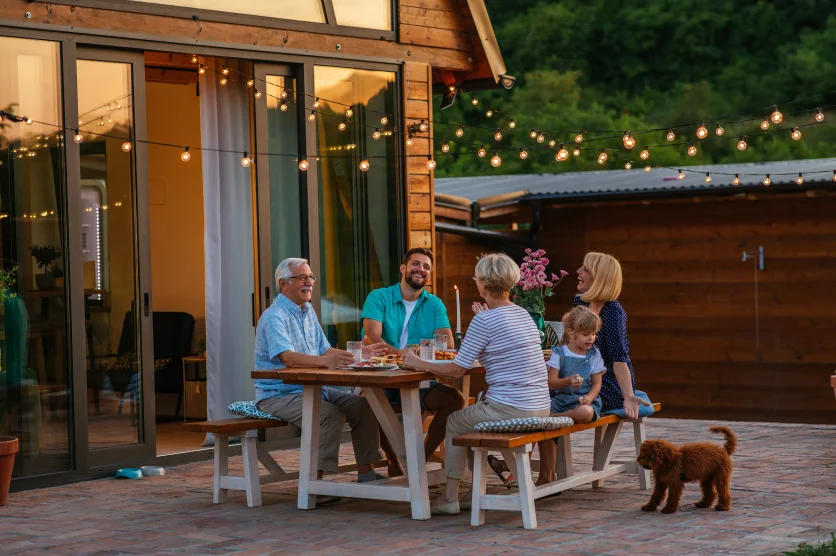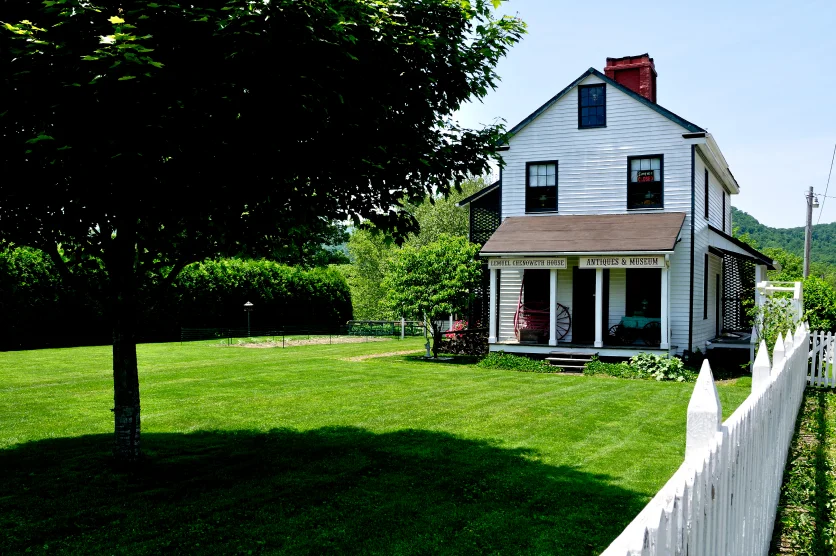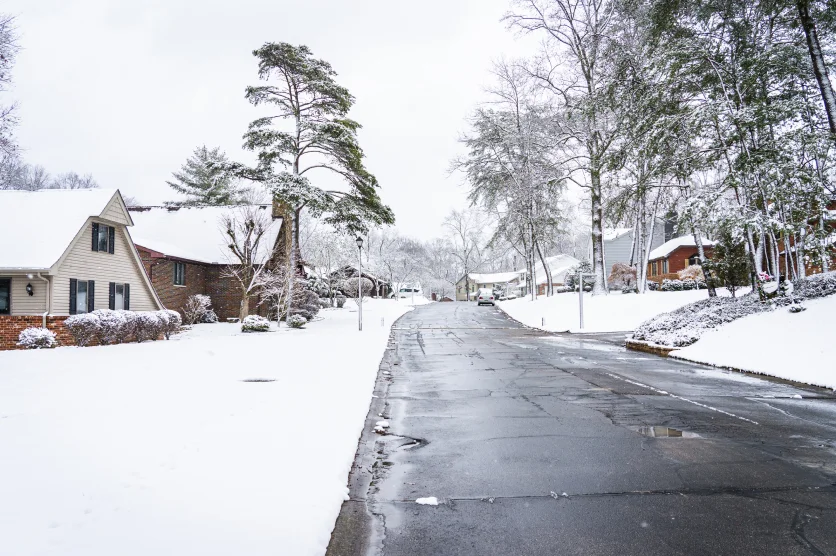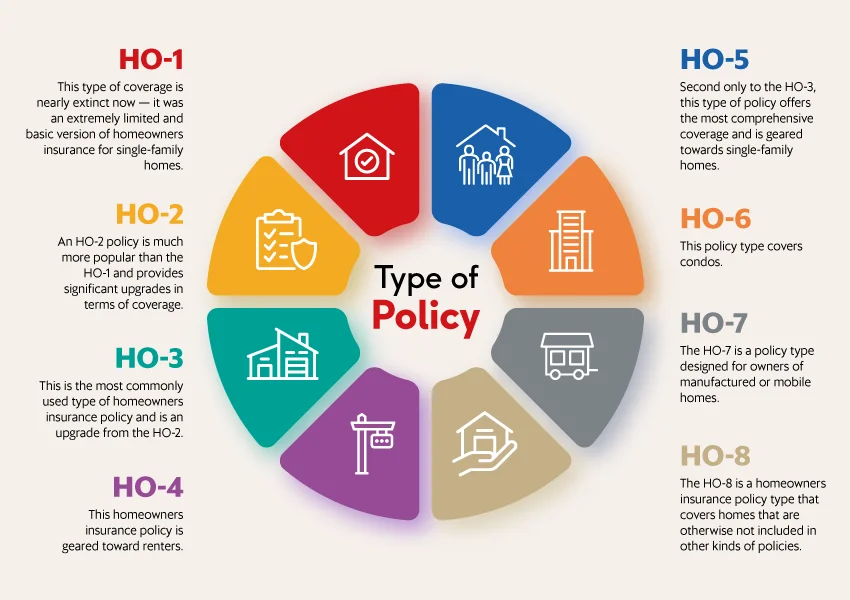
West Virginia Homeowners Insurance Quotes
Everything You Need to Know about Home Insurance in West Virginia
West Virginia, known for its stunning natural beauty, offers a truly authentic experience for tourists and residents. From small towns like Shepherdstown and Harpers Ferry to the capital city of Charleston, the state showcases a range of landscapes and attractions.
Activities that can be enjoyed there are abundant. Outdoor enthusiasts can explore the Appalachian Mountains through hiking, biking, or horseback riding. The state is also famous for its whitewater rafting opportunities, with thrilling rapids waiting to be conquered in places like New River and Gauley River. Those seeking a more relaxed life can visit the state’s wineries, art galleries, and historical sites.
In addition to its natural beauty and things to do, the Mountain State is an ideal place to live due to its affordable cost of living—one can easily enjoy a nice lifestyle without breaking the bank. However, like any other state, it is important to protect your home with proper insurance coverage.
InsureOne is a reliable insurance provider that can help homeowners in West Virginia find the best homeowners insurance at the lowest price. Insure your home against any unforeseen events and live with peace of mind.
How Much Does Homeowners Insurance Cost in West Virginia?
The average cost of homeowners insurance in West Virginia is $1,426 per year or $119 per month. This is significantly lower than the national average of $1,820.
Considering the diverse weather conditions in the state, this cost is remarkably favorable. With West Virginia experiencing winter storms, severe weather, and heavy rainfall, having home insurance coverage at such a reasonable price is highly advantageous.
Remember that insurance policies offer peace of mind and protection against potential wind damage and other issues caused by the unpredictable climate.
How Do Home Insurance Deductibles Affect Rates in West Virginia?
The choice of home insurance deductibles in West Virginia can impact the rates homeowners pay. Increasing the deductible, the amount paid out of pocket before insurance coverage kicks in, has the potential to lower insurance rates. This happens because a higher deductible means lower costs for the insurance company, resulting in lower premiums for homeowners.
However, opting for a lower deductible could lead to higher insurance rates. With a lower deductible, the insurance company would have to cover a larger portion of the claim in case of a loss, increasing their risk and costs. As a result, they may adjust your premiums accordingly.
Therefore, it’s important to consider your own risk tolerance and financial situation. Increasing your deductible can lead to lower rates, but it also means you will have to pay more out of pocket in the event of an approved claim.
Finding the right balance between potential cost savings and out-of-pocket expenses is the key. Apply the 9 Tips to Save on Homeowners Insurance and call an InsureOne agent for personalized assistance.
Compare Home Insurance Rates by Coverage Levels in West Virginia
Insurance premium costs depend on factors such as age and location, but the amount of dwelling coverage in your policy is crucial. This coverage determines how much your insurer will pay to rebuild your home. Accurately assessing this amount is vital because in the event of a total loss, having sufficient funds to rebuild or buy another home will make a critical difference.
Here are some average annual costs for residents of West Virginia based on different coverage amounts.
| Dwelling Coverage (West Virginia) | Average Annual Insurance Cost |
|---|---|
| $100,000 | $748 |
| $200,000 | $1,087 |
| $300,000 | $1,426 |
| $400,000 | $1,802 |
| $500,000 | $2,214 |
At InsureOne, we can help you find the best home protection at the best price. We’ll shop around for you and provide you with the top options so you can choose.

Is Home Insurance Tax Deductible in West Virginia?
In general, home insurance expenses are not tax deductible. However, there are a few exceptions worth exploring. For instance, if you have a home office and work from home, you may be eligible to deduct some expenses related to your home business.
Furthermore, if you had a claim denial during the year, you might be able to request a deduction for a portion of your home insurance expenses. To fully understand the circumstances under which these deductions may apply to your situation, it is advisable to consult with a tax professional or accountant.
Does West Virginia Have the 80% Homeowners Insurance Rule?
Most insurance companies follow the 80% rule, which can be confusing for many homeowners. Simply put, if your coverage is less than 80% of your home’s replacement value, your insurance company will not fully compensate you in the event of a claim.
For example, if your home has a replacement cost of $500,000, it should be insured for at least $400,000 (80% of $500,000). If your coverage is lower than that, the insurer will only pay a portion of the minimum coverage you purchased. It’s important to note that if you make significant improvements to your home, you should increase your coverage to 80% or more of the replacement cost.
Bundling Home and Auto Insurance in West Virginia
Bundling multiple policies with the same insurance company can lead to significant savings on homeowners insurance. By combining your home insurance with other policies such as auto insurance, you can potentially save up to 15% or $372 on your overall policy.
Insurance companies value customer loyalty and find it more manageable when policies are bundled together. Ask your InsureOne agent about the discounts you may qualify for when purchasing or renewing your policy.

What Factors do Insurance Companies Consider when Setting Rates in West Virginia?
When setting homeowners insurance rates in West Virginia, insurance companies consider several factors to determine the cost of coverage. These factors help insurers assess the level of risk associated with insuring a particular property. Here are some key factors that insurance companies typically consider:
- Location: The location of the property plays a significant role in determining insurance rates. Factors such as proximity to a fire station, crime rates in the area, and exposure to natural disasters like floods or hurricanes can impact the risk level and, therefore, the cost of coverage.
- Dwelling characteristics: Specific details about the property, including its age, construction materials, square footage, and condition, are taken into account. Older homes or homes made of high-risk materials may have higher insurance rates.
- Claims history: Insurers review the homeowner’s claims history to assess the likelihood of future claims. A property with a history of frequent claims or significant damages may result in higher insurance rates.
- Credit score: In West Virginia, insurance companies often consider the homeowner’s credit score when determining rates. A higher credit score is generally associated with a lower level of risk, resulting in potentially lower insurance premiums.
- Safety features: The presence of safety features like security systems, smoke detectors, fire alarms, and sprinkler systems can positively impact insurance rates as they reduce the risk of certain perils.
- Personal factors: Homeowners’ age, occupation, and insurance history may also be factored into the premium calculation. These personal factors can vary among insurance companies, so it’s important to gather quotes from multiple providers.
It’s worth noting that each insurance company may weigh these factors differently, resulting in varied premium rates. When shopping for homeowners insurance in West Virginia, it’s advisable to compare quotes from multiple insurers to find the best coverage and rates for your specific circumstances.
What are the Different Types of Home Insurance?
There are 8 distinct types of homeowners insurance policies, each tailored to offer coverage for a diverse range of homes.
Life in West Virginia is predominantly rural, and cottage-style houses are popular here. Regardless of your type of house, it is essential that your insurance coverage aligns with your assets and safeguards you from any risks. Let a well-informed professional from InsureOne assist you throughout the process.
What is the Most Common Homeowners Insurance in West Virginia?
The HO-3 policy is a common type of homeowners coverage in West Virginia. It typically provides broad coverage for your dwelling and other structures on your property, as well as personal property and liability protection. However, it’s important to note that specific coverage details may vary depending on the insurance provider.
As for additional insurance options, one example is flood insurance. While homeowners insurance typically does not cover flood-related damages, residents in certain areas of West Virginia may be at higher risk for flooding. In such cases, obtaining a separate flood insurance policy can provide crucial protection.
Another example is umbrella insurance, which offers an extra layer of liability coverage beyond the limits of your standard homeowners policy. This type of insurance can be particularly beneficial if you have significant assets to protect or if you want additional liability coverage for unexpected events.

Get the Best Homeowners Insurance in West Virginia Today
If you want to take advantage of all the benefits of living in West Virginia, insure your home with the best affordable protection. At InsureOne, we are committed to finding the best coverage and price to fit your needs and budget.
Getting started is easy. Just give us a call at (800) 836-2240, easily request a home insurance quote on our website, or feel free to stop by one of our locations for a face-to-face consultation with our experts.



